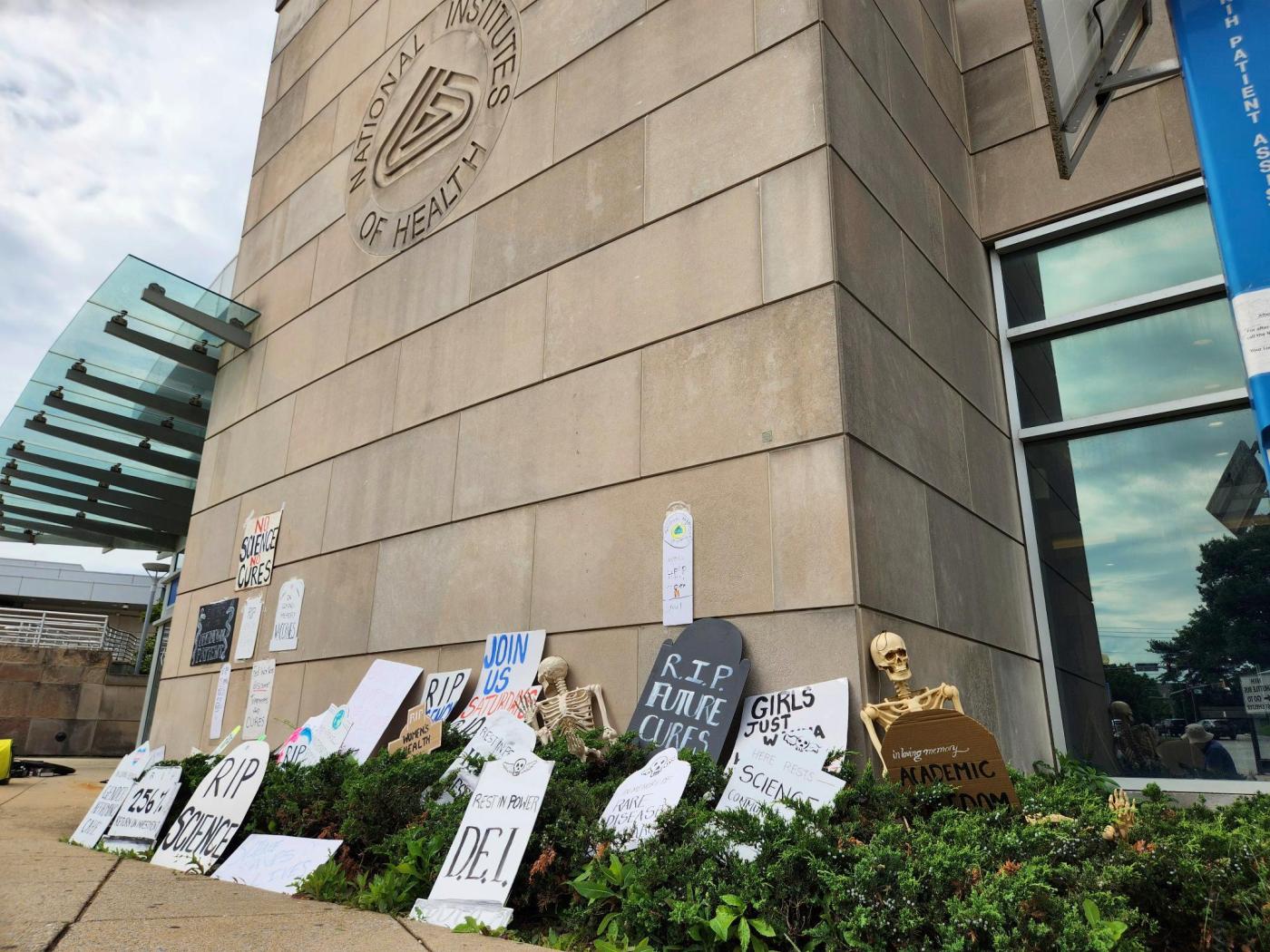Recent letters to the editor have highlighted significant concerns regarding U.S. Rep. Jen Kiggans and her stance on health care and immigration, as well as reactions to a controversial advertising campaign by American Eagle. These opinions reflect deeper issues affecting families and communities.
In a heartfelt letter, Rebecca Myers expressed her dismay over cuts to the National Institutes of Health (NIH). As the parent of a child with a rare genetic disorder known as PIK3CA-Related Overgrowth Spectrum (PROS), which leads to severe health complications, Myers emphasized the critical role of NIH research in providing necessary treatments. She criticized the Trump administration’s deep cuts to public health funding, stating, “Without NIH research, my family and so many others would not be able to continue to celebrate birthdays with their children.” Myers accused Kiggans of complicity in these cuts, noting her recent votes to reduce essential services such as Medicaid and SNAP. She called for leadership that genuinely protects children’s futures, claiming Kiggans has failed in that regard.
The political landscape in Virginia is further complicated by the upcoming gubernatorial race, where questions have been raised about the Republican candidates’ positions on immigration and LGBTQ+ rights. In a pointed critique, David L. Campbell questioned the commitment of candidates such as Winsome Earle-Sears, the first Black woman to serve as Virginia’s lieutenant governor, to immigrant rights and the treatment of marginalized communities. Campbell highlighted Earle-Sears’ alignment with former President Donald Trump’s controversial statements regarding immigrants, calling into question her values as a Jamaican immigrant herself.
The letter also addressed Attorney General Jason Miyares, raising concerns about his support for Trump’s proposed hiring of additional ICE agents aimed at mass deportation. Campbell’s remarks underscored a broader sentiment that the Republican ticket, which includes Earle-Sears and Miyares, may not represent the interests of all Virginians, particularly those from immigrant backgrounds.
In another letter, Joe Naneville defended American Eagle’s recent advertisement featuring actress Sydney Sweeney. The ad, which plays on the phrase “great jeans,” has attracted mixed reactions, with some critics labeling it as insensitive and reminiscent of eugenics propaganda. Naneville argued that such criticisms are an overreaction and noted that the advertisement has led to a significant increase in American Eagle’s stock price, marking its largest single-day gain since 2000. According to a poll by YouGov, 52% of U.S. adults found the ad appropriate, while only 16% deemed it inappropriate.
Critics of the advertisement, particularly from the left, argue that it reflects a disconnect with contemporary societal values and could further alienate younger male voters from the Democratic Party. Naneville suggested that the backlash demonstrates how out of touch some factions of the left are with mainstream consumer sentiments.
These letters reveal a landscape of concern and frustration among constituents regarding political representation, health care access, and social values. As the political climate continues to evolve, the implications of these discussions will likely resonate in future elections and policy decisions.
